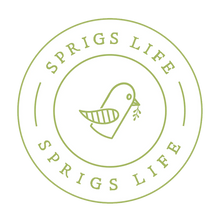Making Your Birth Experience Unforgettable, In the Right Ways
Pregnancy
Making Your Birth Experience Unforgettable, In the Right Ways
The childbirth experience of your dreams. What does it look like? Beautiful, strong, powerful, life giving, life changing, full of your deepest pain, and your greatest joy. Let’s revolutionize the way we look at childbirth for a minute. Let’s pump the breaks on the sterile, convenient, cold, and medical view of childbirth and refocus on a birth that is truly unforgettable, for all the right reasons. Birth can be uncomfortable, to say the least, but if we shift our mind toward the positivity of childbirth and establish an environment that is not just suitable, but ideal, for bringing a baby into the world, we can move further away from uncomfortable. You can do this! You were made for this! For me this begs three main questions as they relate to your most comfortable birth experience: where, who, and what.
•Who are you most comfortable with?
•What do you expect, desire, and fear?
Where are you most comfortable?
Yes, that’s right, you have options. My first child was delivered in a hospital. My mother instincts were telling me things like “you were made for this,” and “women have been birthing everywhere since the beginning of time.” As I was admitted to the hospital I had this yucky gut feeling. I didn’t believe the staff had the same childbirth philosophies as me, but unfortunately, as they broke my water and started the pitocin drip, it was too late to change my mind. The environment was sterile, cold, and hostile. It was far from the warm, loving, and hospitable environment I wanted to bring a baby into. But I didn’t do my research and I believed into the cultural lie that it is safer to have a baby at the hospital. One study followed 679,952 low-risk women from the Dutch Perinatal Registry (2000–2007) and found that these women were at a significant lower risk for intervention and mortality. 1 Another study followed 2,889 women who had planned home birth with a registered midwife present, 4,752 women who had a planned hospital birth with a registered midwife present, and a third group of 5,331 women who had hospital births with a physician present. The rate of perinatal death per 1000 births was 0.35 in the group of planned home births; the rate in the group of planned hospital births was 0.57 among women attended by a midwife, and 0.64 among those attended by a physician. 2 Other than the misleading cultural claims that home births are more dangerous (particularly for low-risk pregnancies), there are even more reasons to consider your options and choose an environment that makes you feel most comfortable.
Home Birth:
An at home birth, accompanied by a registered midwife, is reported as one of the safest place, lowest in interventions to birth your baby if you have a low risk pregnancy. Birthing at home allows you to eat, sleep, walk, rest, stretch, and even shower or bathe in the comfort of your home. In the moments when you are feeling some of the strongest emotions and pain you may ever feel, you will be in the comfort of your home. The only time an at home birth is not your best option is if you are high risk and your midwife, whom you trust, suggests differently. Other than that, it is likely a home birth will be the most comfortable environment for you to birth.
Birth Center Birth:
A birth center birth usually “mocks” an at home birth but is slightly more equipped for handling trauma. It still feels home-y, you can still eat, sleep, walk, rest, stretch, and shower at your leisure. A birth center might be a good option if you are wanting a relaxed environment, a natural delivery, but at concerned about birthing at home. Unfortunately, it isn’t your home so its likely you will feel slightly less in control and comfortable in the space. Additionally, anything that you want to bring from home to accompany your birth will have to be packed and remembered.
Hospital Birth:
Hospitals are not only higher risk for interventions but also for mortality rates for low risks pregnancies. The nature of most hospitals shifts the control from the woman to the doctor, nurses, or midwives present. If you are looking to have a natural birth experience, and are low risk, this is likely not the option for you. Depending on the hospital you cannot eat or drink during labor, you cannot move around at your free will, many times there is not access to a bath or shower until post delivery, and birthing positions and philosophies are conventional, but not necessarily healthful.
When considering where you would be most comfortable and how you envision your birth, consider these options, and discuss your desires with your midwife.
Who are you most comfortable with?
When preparing for my first go-around with labor and delivery I had to consider who would be present at the time of birth. My mother-in-law asked on multiple occasions throughout (and even during my labor) whether she could attend the birth. At the time, I was not comfortable with her being there, so I said no, and when that wasn’t effective, my husband told her no. Mama, if you only hear one thing, hear this: This is your birth. You have the right and the authority to pick and choose who you want to see you in what might be one of your most vulnerable moments. For me, that didn’t include my mother-in-law. Analyze the type of person you are with your vulnerability. How do you cope under pressure or in times of intimate pain? Do you feel more comforted by a large group of relatives - your aunt, your sister, your mother-in-law, your cousin - or do you feel more comforted with just your partner and maybe one or two other people that bring you peace? If you are worried the emotional support you have around you won’t be enough during your birth, consider hiring a doula. Doula’s offer incredible services to women who are needing or wanting additional support in their birth experience. Their main goal is to improve your birth experience, and they are usually really good at it. Likely, your midwife, or maybe some other natural mamas, will have great suggestions for doulas in your area.
What do you expect, desire, fear?
I have found there are three main things that can drive our experience of an event: expectations, desires, and fears. Engaging with these as they relate to your birth experience can bring peace and power to your delivery.
What do you expect?
We all have expectations of what our birth will look like. Whether those expectations are good or bad, they can affect our actually experience. These expectations include those we have for ourselves, and those immediately involved in the event. Evaluating and communicating your expectations beforehand can make a world of a difference. Most of the time, the people involved will do almost anything for you, as long as they know what you want.
-
1 What expectations do you have of your partner? Recognize our expectations may change throughout your pregnancy or even during labor for your partner. Discussing these expectations can help your experience be more comforting and he will also feel more comfortable. Some things to think about include:
- a)Do you expect to be held or left alone during contractions?
- b)Do you expect him to verbally affirm you, or stay silent?
- c)Do you expect him to ensure that the environment is how you want it - say with music, and a diffuser going?
- d)Do you expect him to catch the baby? Be in the birth tub? Or keep his eyes locked on yours so he doesn’t see what’s going on down there?
-
2 What expectations do you have for your midwife, doula, or birthing assistant? Perhaps you are like me and like to be left alone during birth, or maybe you want your midwife heavily involved during your labor. Either way it’s important to consider your expectation for the professionals involved and discuss it with them beforehand.
- a)Do you expect your doula or birth assistant to be present from beginning to end?
- b)Do you expect to be massaged on your pressure points during labor?
- c)Do you expect to use certain herbs, or use certain essential oils during labor?
- d)Do you expect your midwife to be affirming and more hands on, or do you want to be left alone as much as possible?
-
3 What expectations do you have for yourself?
- a)Do you expect to be active throughout your labor?
- b)Do you expect to have a painful labor?
- c)How do you expect to handle the pain?
- d)Do you expect to have food and drink available throughout labor?
What do you desire?
What you want your birth to be like is beyond noteworthy. Evaluating your desires beforehand and discussing them with your partner, midwife, and whomever else is immediately involved can completely change your experience. You want your birth to be comfortable, unforgettable, incredible. So what does that look like. You might be able to ask yourself many of the above questions about expectations and simply replace the word “expect” with “desire.” You can expand this list to encompass the desires you have for your birth experience.
What do you fear?
What you fear might be the strongest driver in influencing your experience. Analyzing, and facing your fears is bravery. The problem is not being afraid of childbirth, with its uncertainty, and inevitable pain, it is being hesitant to engage with fear. A typical response to fear is fight or flight. We tend to tense our muscles. Fear of childbirth only gives us a physical response that hinders our experience and can actually slow the progression of labor - and you definitely don’t want to make your labor unnecessarily long. How do you best confront fear? What motivation do you need to be brave in the face of the fears you have identified? Engaging and discussing your fear can give you better confidence in yourself, your partner, your midwife, and anyone else attending the birth.
- What are your childbirth fears?
- Is there educational material that will help ease your mind about these things?
- Do you have a support system you can discuss these fears with?
- What is a healthy way to cope with these fears?
- How can you better embrace childbirth?
Labor and delivery comes with its discomforts. Considering where you have your birth and who is with you during your birth can have a dramatic impact on your experience. Additionally, analyzing and discussing your expectations, your desires, and your fears can help comfort you and prepare you for the most unforgettable, and amazing birth.
You mama, are a warrior! Your birth can, and will, be an incredible experience. Labor and delivery comes with its discomforts, but we desire for you to have an unforgettable birth, in all the right ways.
Tatiana Schmidt - Holistic Nutritionist

Tatiana Schmidt is a certified Holistic Nutritionist and mama to AJ, a 3 year old boy and Baylin, a 1 year old girl. She has a passion for health, nutrition, and delicious food. You can find her work in the Sprigs Magazine, on the Sprigs Blog, and at tatianaschmidt.com.



Leave a comment